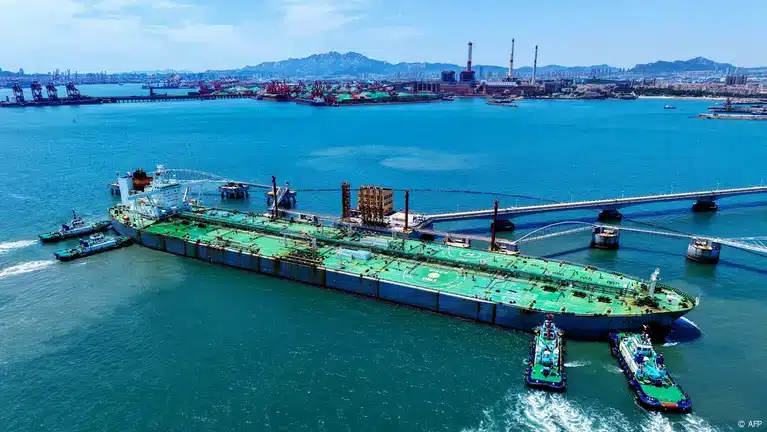India Resists Trump’s Pressure as Russia Crude Imports Surge to $3.4 Billion

At a time when the United States is urging India to halt its imports of Russian crude oil, India’s purchases from Russia have surged significantly. In August, India’s oil imports from Russia reached €2.9 billion (approximately $3.4 billion), closely trailing China’s €3.1 billion. This increase comes despite the U.S. imposing tariffs on Indian exports in response to the ongoing trade, raising questions about the geopolitical dynamics surrounding energy procurement.
US Pressure on India
The U.S. government has been vocal in its demands for India to cease its Russian oil purchases, arguing that such transactions bolster Moscow’s military efforts in Ukraine. In a move to exert pressure, the U.S. implemented a 25% supplementary tariff on Indian exports to America starting August 27. This tariff is unique to India, as similar measures have not been applied to other countries that continue to engage in energy trade with Russia. Former President Donald Trump has called for the European Union to impose tariffs of up to 100% on products from both India and China to further discourage their energy dealings with Russia.
During August, China emerged as the leading importer of Russian crude and coal, while Turkey topped the list for purchasing Russian oil products and gas. This shift in import dynamics highlights the competitive landscape of global energy procurement amidst ongoing geopolitical tensions.
India’s Energy Imports from Russia
According to data from the Centre for Research on Energy and Clean Air, India’s total imports of Russian fossil fuels amounted to €3.6 billion, placing it second behind China, which imported €5.6 billion. India’s energy portfolio included €510 million in coal imports and €282 million in refined products. In contrast, China’s purchases comprised €553 million in oil products, €55 million in coal, and €676 million in pipeline gas. Turkey followed closely with total Russian fossil fuel imports of €3 billion, while the European Union and South Korea ranked fourth and fifth, respectively.
India’s continued engagement in Russian energy trade has sparked criticism, particularly as it resists U.S. pressure. Indian officials argue that it is unfair to single out their country while other nations, including China and members of the EU, maintain substantial energy purchases from Russia.
Geopolitical Implications
The ongoing situation underscores the complex interplay between energy security and international relations. While the U.S. has not directly sanctioned Russian oil, it has established a price ceiling that allows for imports below a specified value. This approach aims to limit the revenue flowing to Russia while still permitting some level of trade.
India’s stance reflects its broader strategy of balancing its energy needs with diplomatic relations. The country has emphasized the importance of energy security and affordability for its population, which complicates its response to external pressures. As the global energy landscape continues to evolve, the implications of these trade dynamics will likely resonate beyond immediate economic considerations, influencing geopolitical alliances and tensions in the region.
Observer Voice is the one stop site for National, International news, Sports, Editor’s Choice, Art/culture contents, Quotes and much more. We also cover historical contents. Historical contents includes World History, Indian History, and what happened today. The website also covers Entertainment across the India and World.

